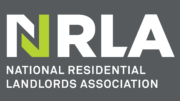Citizens Advice is calling on the Government to require private landlords to deal with complaints of serious issues such as damp and mould in their properties within strict deadlines.
Such responsibilities should be a required feature of tenancy agreements and should be legally binding, placing private landlords in a similar position as social landlords under changes being introduced under the Social Housing (Regulation) Bill. These came about following the coroner’s finding that the 2020 death of two-year-old Awaab had been caused by mould in a social housing flat in Rochdale that had been reported but not dealt with by the landlord.
And Citizens Advice said the Government must follow through on its promise to make sure all new private rental properties are upgraded to a minimum EPC C by 2025 and existing tenancies by 2028.
The calls came after the help charity’s research finding that ‘1.6m children currently live in privately rented homes with damp, mould or excessive cold’.
Tenants in the private rental sector are some of the worst affected by the cost-of-living crisis and they are paying for poor insulation, said Citizens Advice. ‘The average private sector tenant in England is paying £350 more a year on heating because of poorly insulated and damp homes, while those in the least efficient properties are paying an extra £950. With energy bills set to rise again in April, those in the least efficient homes could pay a terrifying £1,190 more a year to keep warm.
‘Every week we hear stories of people living in cold, damp and mouldy properties they can’t afford to heat properly’, said the charity’s head of energy policy Gillian Cooper.
‘It’s shameful that more than 20 years since legislation came into force to reduce fuel poverty and improve the energy performance of homes, people are still suffering.







